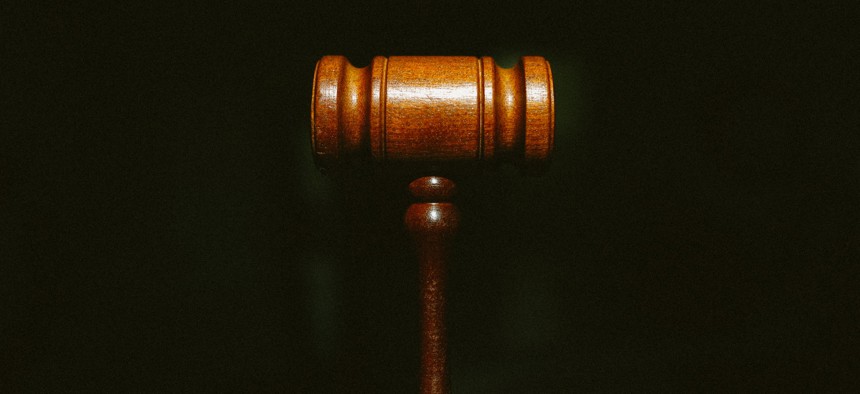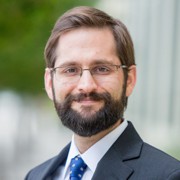Opinion
Opinion: DeSantis, judicial nominating panel slow-walking important vacancy
Neither the governor nor a judicial nominating commission has acted with any urgency in filling the opening created by the death of Judge Kevin Carroll, attorney Adam Richardson writes.

Photo by Tingey Injury Law Firm on Unsplash
Gov. Ron DeSantis usually fills vacancies on the circuit courts of Florida pretty quickly. Just look at the appointments he’s made so far in 2023. But there’s something different about the vacancy caused by the March 15 death of Kevin Carroll, a judge on the Second Judicial Circuit in Tallahassee – a vacancy that hasn’t been filled yet.
Out of the 20 circuit courts in our state, the Second Circuit is particularly important. Our state capital is in one of its counties, Leon. Most lawsuits against the government, including the governor himself, must be filed in, and thus decided by, the judges of that circuit.
These kinds of lawsuits include redistricting cases, public-records lawsuits, and the challenges to DeSantis’s school mask ban and his transportation of migrants to other states. Pretty important stuff, right?
Yet neither the governor nor the Second Circuit Judicial Nominating Commission (JNC) has acted with any urgency in filling this vacancy. And in the JNC’s case, it violated the Florida Constitution. (I’ll note here that I’ve already asked the questions I raise below to the JNC’s chairman. I’m still waiting for responses.)
Related coverage – Judicial nominating panel to interview applicants for Tallahassee vacancy
The Constitution reads in part that a “[v]acancy in office shall occur ... upon the death ... of the incumbent.” Elsewhere, in the provision covering vacancies in the judicial branch, the Constitution says:
The nominations shall be made within thirty days from the occurrence of a vacancy unless the period is extended by the governor for a time not to exceed thirty days. The governor shall make the appointment within sixty days after the nominations have been certified to the governor. (Emphasis added.)
We have clear constitutional language starting the clock to find Carroll's replacement at his death on March 15. The Constitution required the JNC to make nominations by or on April 14 or, if granted an extension, May 14. The governor’s deadline for an appointment would have been July 13 at the latest.
But after Carroll’s death, nothing happened for a while. The governor didn’t send the customary letter to the JNC asking it to convene and send him nominations. The JNC didn’t make the customary announcement inviting applications. It wasn’t until July 6 that the governor sent a letter to the JNC asking it to make nominations by Aug. 20, and until July 18, that the JNC issued an announcement – 125 days after Carroll’s death.
The JNC set a deadline for applications of July 31 (see the list here), with a final day of interviews of Aug. 15. Trial court JNCs often send nominations to the governor the day interviews are done. If this JNC does that and doesn’t ask for a thirty-day extension, 153 days will have gone by. DeSantis then has 60 days, or until Oct. 14, to make the appointment.
This timing matters because, as the Tallahassee Democrat has reported, if the appointment is made before or on Aug. 20, the governor’s appointee to the circuit court that decides so many important cases against the state would face the voters next year.
The governor’s request that the JNC make nominations by Aug. 20 shows awareness of the timing issue. Yet it seems guaranteed that the appointment will not be made until after Aug. 20, so the appointee would not be up for election until 2026.
Had the Second Circuit JNC followed the Constitution, it would have avoided this result. (It’s likely the governor already knew who would apply and be nominated, which would allow him to make an Aug. 20 appointment.) Maybe the JNC believed it couldn’t start its work until it received a letter to convene, no matter how dilatory the governor was.
There would be two problems with this. The first, of course, is the Constitution. Whatever the custom or practice is regarding letters to convene, a custom can’t override the plain language of the Constitution.
And the Florida Supreme Court has already spoken on an analogous circumstance. The court has held that a vacancy exists when a circuit judge’s letter of resignation, to be effective at a later date, “is received and accepted by [the governor],” which “actuates the process to fill it.” The court continued: “The duties of the appropriate nominating commission start and its list should be submitted within thirty days of [the governor’s] acceptance of the resignation unless extended an additional thirty days.” The same is obviously true of a vacancy created by death.
The second problem is that the JNC’s rules (see page 32 in the PDF) state that, when a vacancy occurs, “the appropriate commission shall actively seek, receive and review” applications (again, emphasis added). The Second Circuit JNC failed to follow the rules. It’s also not clear why the JNC, if it did not believe it needed a letter from the governor to proceed, it failed to comply with the Constitution.
After the JNC finally made the announcement, retired journalist Robert Sanchez wrote about the governor’s “stalling,” saying, “This very liberal circuit based in the state capital is arguably more important than other circuits because many cases involving state constitutional issues are initially filed there.”
Attorney Nicholas Warren tweeted: “DeSantis is slow-walking filling a seat on Florida’s most important trial court, so his eventual appointee won’t have to face voters in the blue-leaning circuit next year.”
Unfortunately, that’s plausible given the politics the governor has played with judicial appointments, and his tight control over the JNCs. So I submitted a public records request to the JNC for communications with the governor’s office about the vacancy; that request is pending.
The only way to force the JNC to follow the Constitution and begin its work would have been to file a lawsuit against the JNC. Ideally, the plaintiff would’ve been a lawyer who wanted to apply for the vacancy. No surprise that a prospective applicant wouldn’t want to sue the very JNC he’d want to apply to. We’re basically operating under an honor system. That’s not enough, apparently.
It’s not great that the JNC neglected its constitutional duty, but there is another problem. A law review article explains that “Florida has a long history of electing its trial court judges.”
In 2000, the voters in every circuit were asked whether they wanted to forgo elections for circuit judges in favor of gubernatorial appointments. Every jurisdiction resoundingly rejected the measure. The vote in the Second Circuit was 71.9% against and 28.1% for.
But across the state, most circuit judges are appointed, not elected. In the Second Circuit, ten of the fifteen circuit judges were appointed, just five elected. (Carroll was an appointee, in fact.)
The JNC’s delay not only disregards the Constitution but will lead to an outcome the Second Circuit’s voters didn’t want. It is already hard enough to defeat a judge who was appointed, as they enjoy the benefits of incumbency nonetheless. It’ll be even harder when the judge has an extra two years in office.
The JNC’s delay is an extreme example of the steady erosion of voters’ longstanding right to elect circuit judges who represent their communities. And this problem will become even worse if circuit courts are “consolidated,” a terrible idea that may well happen.
The JNC rules say: “Judicial nominating commissioners hold positions of public trust.” The Second Circuit JNC must explain why it’s undermining the choice made by Second Circuit voters in 2000 by virtually ensuring that the governor’s appointee faces voters not next year, but in 2026.
Most importantly, of course, the JNC must explain why it blew off the Florida Constitution.
Adam Richardson is an appellate attorney in West Palm Beach. Views expressed are those of the author and not of the City & State Florida editorial staff.
NEXT STORY: Bill Cotterell: Biden conference calls should have a paper trail
